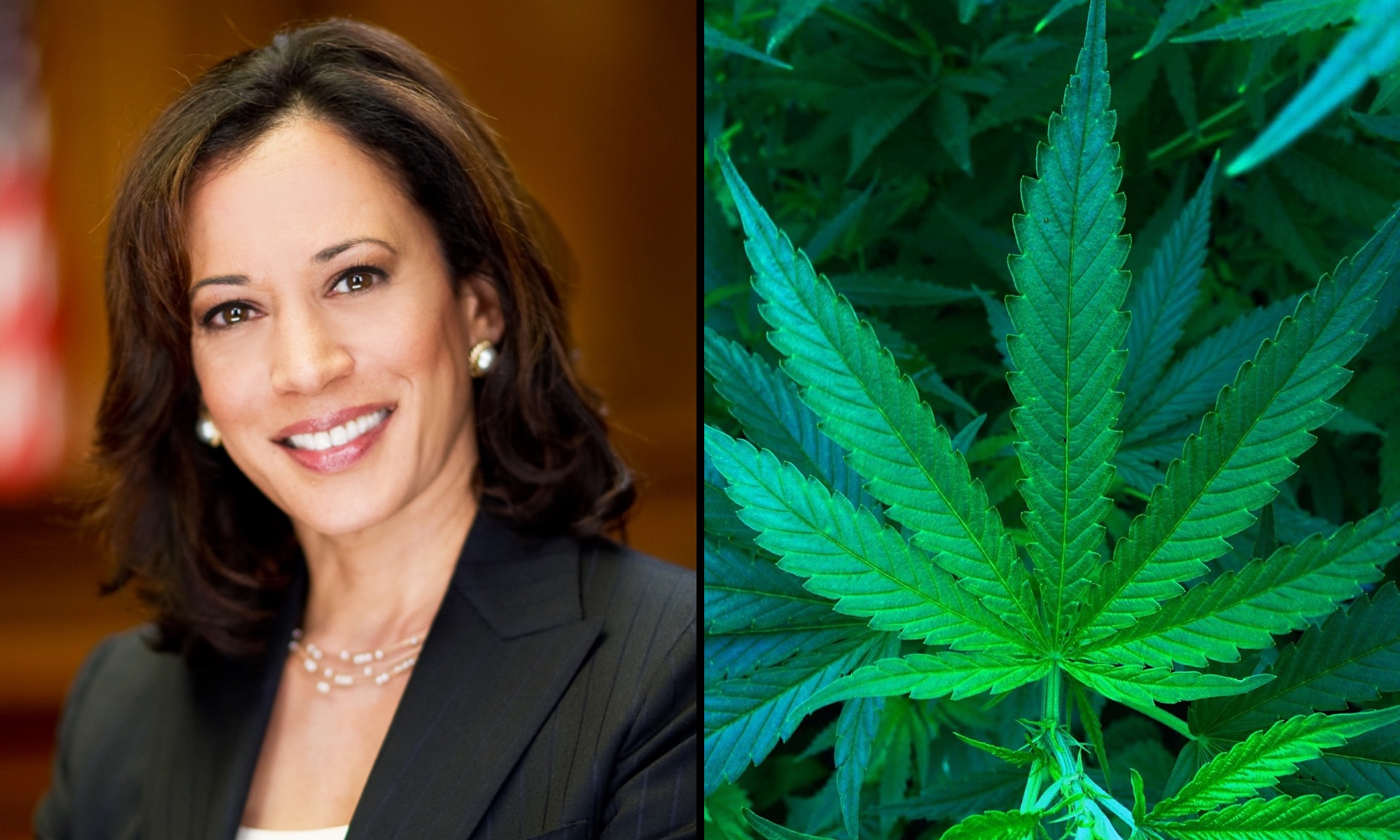VP Kamala Harris Claims Administration ‘Changed Federal Marijuana Policy’ While Using Incorrect Map Of State Legalization Laws
Vice President Kamala Harris cited the Biden administration’s moves toward reforming federal marijuana laws in a new video appealing to young voters—though her specific claim that policies have already been “changed” is premature. Meanwhile, the video also features a map that purports to highlight states that have legalized cannabis but that contains misinformation about which jurisdictions have actually ended criminalization.
“We changed federal marijuana policy, because nobody should have to go to jail just for smoking weed,” Harris says in the video, posted to X on Friday.
While President Joe Biden has issued mass pardons for people who have committed federal cannabis offenses and initiated a review of marijuana’s federal scheduling status, the clemency move did not free anyone from incarceration and the drug currently remains under Schedule I pending the Drug Enforcement Administration’s (DEA) ongoing consideration of a Schedule III recommendation from health officials.
As such, the vice president’s claim that federal marijuana policy has already been “changed” in order to ensure that people aren’t in jail for cannabis is inflated.
What’s more, the video that Harris posted also shows a map that it says shows “places that allow marijuana for medical & recreational use,” but it contains major errors.
Notably, the color scheme of the map is reversed such that it incorrectly depicts states with only legal medical cannabis as having also legalized adult-use marijuana, and shows those that have actually enacted both forms of legalization as having only medical use allowed.
For example, it claims that states such as Florida, Louisiana, Pennsylvania Oklahoma Utah, among others, have legalized cannabis for both medical and adult use, but they in fact only have medical marijuana laws.
In any case, Harris’s video is just the latest example of the administration touting its ongoing cannabis moves in the run up to this year’s elections.
For example, ahead of last weekend’s South Carolina primary, the vice president said Biden’s move to pardon people for federal marijuana possession offenses is an example of how the administration is delivering for Americans, particularly young and Black voters who could be key to the president’s reelection bid.
In any case, Harris’s video is just the latest example of the administration touting its ongoing cannabis moves in the run up to this year’s elections.
For example, ahead of last weekend’s South Carolina primary, the vice president said Biden’s move to pardon people for federal marijuana possession offenses is an example of how the administration is delivering for Americans, particularly young and Black voters who could be key to the president’s reelection bid.
“Another issue [is] what we have done to pardon tens of thousands of people for simple marijuana possession under the federal law—because, frankly, nobody should have to go to jail for smoking weed,” Harris said.
While Harris said “tens of thousands” have been pardoned under President Joe Biden’s October 2022 and December 2023 clemency proclamations, the Justice Department estimates that roughly 13,000 people have been granted relief under the executive action.
But inflated rhetoric around the pardons has been a consistent theme, with Biden himself frequently exaggerating the impact by falsely suggesting that people were released from prison over marijuana and that criminal records were expunged. A pardon simply constitutes formal forgiveness, and nobody who received a pardon was actively incarcerated in federal prison over simple possession.
As advocates have also pointed out, there are still people in federal prison over other non-violent marijuana offenses. They’ve pushed the Biden administration to do more, including keeping his key cannabis campaign pledge to decriminalize marijuana.
Meanwhile, the Justice Department is now seeking White House approval to update its data collection process related to marijuana pardon certificates that it is issuing under the president’s expanded clemency proclamation.
People who are eligible for the pardons don’t need to apply for a certificate; the relief is automatic, but the administration wanted to give individuals an opportunity to have it formally documented if they desire. The Justice Department was quick to open the updated applications and has already begun issuing certifications.
While Biden campaigned on marijuana decriminalization, and Harris sponsored federal marijuana legalization legislature during her time in the Senate, the pardons and an administrative directive for federal agencies to review cannabis scheduling represent the extent of the marijuana reform actions in the White House to date.
Under the directive, the U.S. Department of Health and Human Services (HHS) has recommended moving marijuana from Schedule I to Schedule III of the Controlled Substances Act (CSA), and now it’s up to the Drug Enforcement Administration (DEA) to make the final call.
By repeatedly touting his mass cannabis pardon and scheduling review, it seems Biden is aware of the political popularity of marijuana reform. And a recent poll suggests he stands to gain significantly in terms of favorability if his scheduling directive results in a reclassification under federal law.
It found that voters’ impression of the president jumped a net 11 points after hearing about the possible implications of the rescheduling review—and that includes an 11-point favorability swing among young voters 18-25 who will be critical to his reelection bid.

